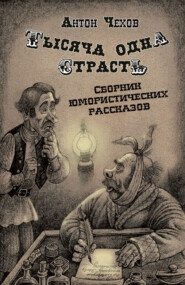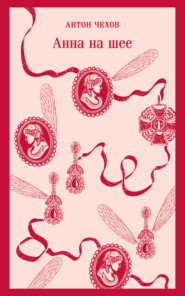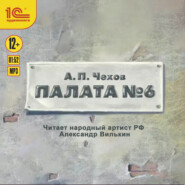По всем вопросам обращайтесь на: info@litportal.ru
(©) 2003-2025.
✖
The House with the Mezzanine and Other Stories
Настройки чтения
Размер шрифта
Высота строк
Поля
"What do you want?" he asked after a while.
"I came to tell you that my sister is very ill. She is dying," I said dully.
"Well?" My father sighed, took off his spectacles and laid them on the table. "As you have sown, so you must reap. I want you to remember how you came to me two years ago, and on this very spot I asked you to give up your delusions, and I reminded you of your honour, your duty, your obligations to your ancestors, whose traditions must be kept sacred. Did you listen to me? You spurned my advice and clung to your wicked opinions; furthermore, you dragged your sister into your abominable delusions and brought about her downfall and her shame. Now you are both suffering for it. As you have sown, so you must reap."
He paced up and down the study as he spoke. Probably he thought that I had come to him to admit that I was wrong, and probably he was waiting for me to ask his help for my sister and myself. I was cold, but I shook as though I were in a fever, and I spoke with difficulty in a hoarse voice.
"And I must ask you to remember," I said, "that on this very spot I implored you to try to understand me, to reflect, and to think what we were living for and to what end, and your answer was to talk about my ancestors and my grandfather who wrote verses. Now you are told that your only daughter is in a hopeless condition and you talk of ancestors and traditions!.. And you can maintain such frivolity when death is near and you have only five or ten years left to live!"
"Why did you come here?" asked my father sternly, evidently affronted at my reproaching him with frivolity.
"I don't know. I love you. I am more sorry than I can say that we are so far apart. That is why I came. I still love you, but my sister has finally broken with you. She does not forgive you and will never forgive you. Your very name fills her with hatred of her past life."
"And who is to blame?" cried my father. "You, you scoundrel!"
"Yes. Say that I am to blame," I said. "I admit that I am to blame for many things, but why is your life, which you have tried to force on us, so tedious and frigid, and ungracious, why are there no people in any of the houses you have built during the last thirty years from whom I could learn how to live and how to avoid such suffering? These houses of yours are infernal dungeons in which mothers and daughters are persecuted, children are tortured… My poor mother! My unhappy sister! One needs to drug oneself with vodka, cards, scandal; cringe, play the hypocrite, and go on year after year designing rotten houses, not to see the horror that lurks in them. Our town has been in existence for hundreds of years, and during the whole of that time it has not given the country one useful man – not one! You have strangled in embryo everything that was alive and joyous! A town of shopkeepers, publicans, clerks, and hypocrites, an aimless, futile town, and not a soul would be the worse if it were suddenly razed to the ground."
"I don't want to hear you, you scoundrel," said my father, taking a ruler from his desk. "You are drunk! You dare come into your father's presence in such a state! I tell you for the last time, and you can tell this to your strumpet of a sister, that you will get nothing from me. I have torn my disobedient children out of my heart, and if they suffer through their disobedience and obstinacy I have no pity for them. You may go back where you came from! God has been pleased to punish me through you. I will humbly bear my punishment and, like Job, I find consolation in suffering and unceasing toil. You shall not cross my threshold until you have mended your ways. I am a just man, and everything I say is practical good sense, and if you had any regard for yourself, you would remember what I have said, and what I am saying now."
I threw up my hands and went out; I do not remember what happened that night or next day.
They say that I went staggering through the street without a hat, singing aloud, with crowds of little boys shouting after me:
"Little Profit! Little Profit!"
XX
If I wanted to order a ring, I would have it inscribed: "Nothing passes." I believe that nothing passes without leaving some trace, and that every little step has some meaning for the present and the future life.
What I lived through was not in vain. My great misfortunes, my patience, moved the hearts of the people of the town and they no longer call me "Little Profit," they no longer laugh at me and throw water over me as I walk through the market. They got used to my being a working man and see nothing strange in my carrying paint-pots and glazing windows; on the contrary, they give me orders, and I am considered a good workman and the best contractor, after Radish, who, though he recovered and still paints the cupolas of the church without scaffolding, is not strong enough to manage the men, and I have taken his place and go about the town touting for orders, and take on and sack the men, and lend money at exorbitant interest. And now that I am a contractor I can understand how it is possible to spend several days hunting through the town for slaters to carry out a trifling order. People are polite to me, and address me respectfully and give me tea in the houses where I work, and send the servant to ask me if I would like dinner. Children and girls often come and watch me with curious, sad eyes.
Once I was working in the governor's garden, painting the summer-house marble. The governor came into the summer-house, and having nothing better to do, began to talk to me, and I reminded him how he had once sent for me to caution me. For a moment he stared at my face, opened his mouth like a round O, waved his hands, and said:
"I don't remember."
I am growing old, taciturn, crotchety, strict; I seldom laugh, and people say I am growing like Radish, and, like him, I bore the men with my aimless moralising.
Maria Victorovna, my late wife, lives abroad, and her father is making a railway somewhere in the Eastern provinces and buying land there. Doctor Blagovo is also abroad. Dubechnia has passed to Mrs. Cheprakov, who bought it from the engineer after haggling him into a twenty-per-cent reduction in the price. Moissey walks about in a bowler hat; he often drives into town in a trap and stops outside the bank. People say he has already bought an estate on a mortgage, and is always inquiring at the bank about Dubechnia, which he also intends to buy. Poor Ivan Cheprakov used to hang about the town, doing nothing and drinking. I tried to give him a job in our business, and for a time he worked with us painting roofs and glazing, and he rather took to it, and, like a regular house-painter, he stole the oil, and asked for tips, and got drunk. But it soon bored him. He got tired of it and went back to Dubechnia, and some time later I was told by the peasants that he had been inciting them to kill Moissey one night and rob Mrs. Cheprakov.
My father has got very old and bent, and just takes a little walk in the evening near his house.
When we had the cholera, Prokofyi cured the shopkeepers with pepper-brandy and tar and took money for it, and as I read in the newspaper, he was flogged for libelling the doctors as he sat in his shop. His boy Nicolka died of cholera. Karpovna is still alive, and still loves and fears her Prokofyi. Whenever she sees me she sadly shakes her head and says with a sigh:
"Poor thing. You are lost!"
On week-days I am busy from early morning till late at night. And on Sundays and holidays I take my little niece (my sister expected a boy, but a girl was born) and go with her to the cemetery, where I stand or sit and look at the grave of my dear one, and tell the child that her mother is lying there.
Sometimes I find Aniuta Blagovo by the grave. We greet each other and stand silently, or we talk of Cleopatra, and the child, and the sadness of this life. Then we leave the cemetery and walk in silence and she lags behind – on purpose, to avoid staying with me. The little girl, joyful, happy, with her eyes half-closed against the brilliant sunlight, laughs and holds out her little hands to her, and we stop and together we fondle the darling child.
And when we reach the town, Aniuta Blagovo, blushing and agitated, says good-bye, and walks on alone, serious and circumspect… And, to look at her, none of the passers-by could imagine that she had just been walking by my side and even fondling the child.

















